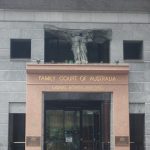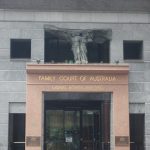Family Court Judges to Receive Domestic Violence Training

A new initiative is being implemented into the Family Court of Australia and Federal Circuit Court of Australia, aimed at helping to address the issue of domestic and family violence across the nation.
The Courts have recently engaged the Safe & Together Institute from the USA to deliver court-wide training to judges presiding over family law cases.
The Safe & Together Model
The Safe & Together Model is highly regarded world-wide and has been endorsed by many of Australia’s leading family and domestic violence experts.
The model uses a behavioural approach to mapping patterns of abuse on the way families function.
It aims to “close the gap” between assessment of child abuse and domestic violence, to reduce victim-blaming and increase accountability for parents who are using violence and coercive control.
The courts have come under scrutiny in recent times as family violence runs rampant, resulting in the deaths of women and children. And there have long been calls for more professional development and training for the Judiciary, including by the 2017 Australian Parliamentary Inquiry into the Family Law system.
The Family Court system has pledged to address a range of issues, with Chief Justice Hon Will Alstergren reiterating that “the safety of children and families is the highest priority for the Courts, it is important that judges, registrars, family consultants and other staff of the Courts are provided with the opportunity for regular training on the issues of family violence and the impact on children.”
Preventable deaths
After a coronial inquest into the deaths of teenagers Jennifer and Jack Edwards who were shot dead by their father John Edwards in 2018, NSW Coroner Theresa O’Sullivan found ‘systemic failures’ by the NSW Police, the Family Court System and the Firearms Registry cost the two teenagers their lives and the deaths were entirely ‘preventable.’
Police are currently investigating the suspected murder suicide of a man and his 9-month old baby at Whispering Wall in South Australia. And there are many questions around why the man had been banned from going within 200 metres of his family, contacting them, or posting about them online, and yet had visitation rights, which gave him lawful access to his baby daughter.
These are just two cases currently in the spotlight, but both speak loudly for the urgent need for reforms to better protect children who are living in violent homes, or where there are domestic disputes between parents.
Problems in the system
There have also been calls for change in the way court approved ‘experts’ are used.
These individuals carry enormous responsibility and wield extraordinary power when it comes to influencing the outcome of family court cases. But many believe that the bar is set too low when it comes to the expertise of these people, and that accountability mechanisms in respect of the assertions they make are insufficient, highlighting the critical fact that inaccuracies can have a substantial and irreversible impact on families.
Family report expert writers are usually social workers, psychologists or psychiatrists. In 2018, a group of parents accused a Family Court ‘expert’ of “grossly inaccurate and incomplete” recording of interviews, “misdiagnosis”, and the application of “unscientific theory” in reaching his opinions, which have carried a great deal of weight in court, to support claims of child abuse and family violence.
The ‘expert’ was then referred for investigation over the allegations.
There have also been a litany of complaints about duplications between the Family Court of Australia and Federal Circuit Court of Australia, long waiting times, and delays in cases being determined. Family Court of Australia and Federal Circuit Court of Australia, much like Australia’s criminal courts are underfunded and stretched to capacity, with the impact of the pandemic yet to fully hit, but expected to make the situation worse.
Another important issue that needs to be addressed is the stress put on lawyers, Judges and Magistrates right across the system and the toll this can take on their mental and emotional health.
While there is a long way to go, for many, providing specialist training for judges in the very complex area of domestic and family violence is a positive step forward, and something that looks like it will support much-needed change which is long overdue.







